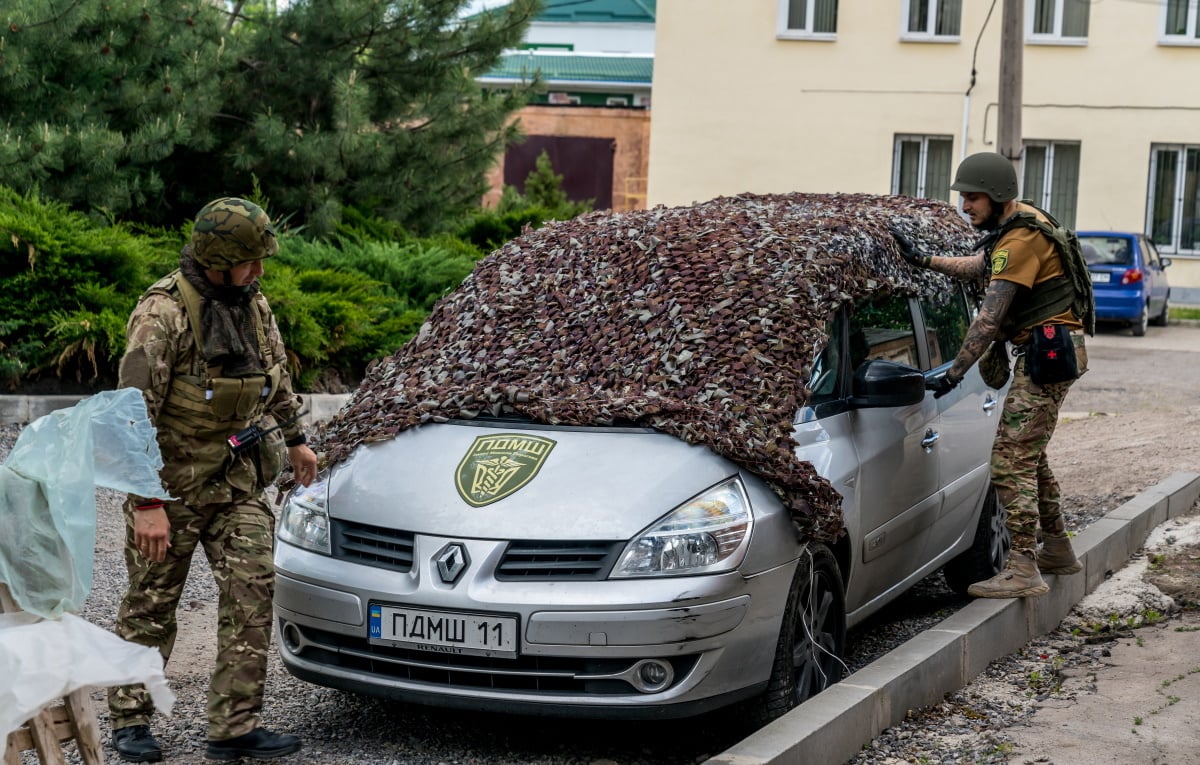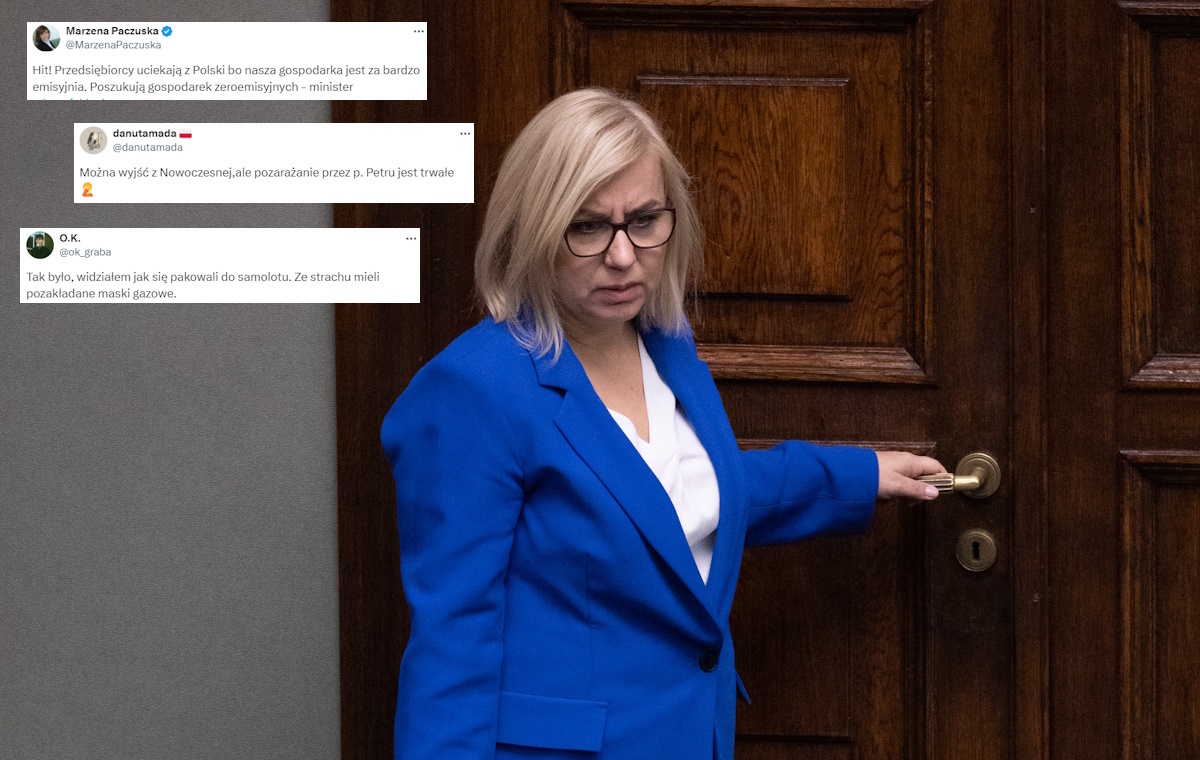As recently as six weeks ago, Poland began building a wall on its border with Belarus. Refugees, asylum seekers and migrants seeking to enter the EU from Syria, Iraq or Afghanistan via Belarus must be stopped. The tragedy of several thousand people who had to survive the freezing cold in the border zone and who were not allowed to enter Poland or return to Belarus has been making headlines for weeks.
And now a completely different reaction. Poland, like all other EU countries, has opened its borders wide to war refugees from Ukraine. Everyone and everyone must be accepted – this is a promise made by the President of the European Commission, Ursula von der Leyen.
Very different answer
“What a difference!” – said Catherine Woollard, director of the European Council for Refugees and Exile (ECRE) in Brussels. Woollard has worked on migration policy for many years as part of an association that connects several dozen aid organizations. The current crisis, with estimates of up to four million refugees, is the biggest crisis Europe has had to face since World War II. – The European Union is able to deal with it. He was also able to tackle this problem in 2015, but today we see a completely different reaction, says a refugee expert.
In 2015, about one million refugees from the Syrian civil war arrived in Central Europe via the Balkan route. The European Union entered into a deep political dispute over their placement which continues to this day.
In the case of people coming from Ukraine, the European Union has so far reacted differently, says Catherine Woollard. – We are grateful and hope it will continue to be so. It is clear that the general response to the large numbers of refugees is keeping the situation somewhat under control, the ECRE director said.
Rare unanimity
The EU Commissioner for Migration, Ylva Johansson, was also surprised by how quickly EU Interior Ministers were able to approve aid to people coming from Ukraine. There has been no unanimity in the EU on migration policy for years.
– I’m proud to be European. “I am proud of the solidarity shown by individuals, local authorities, border guards, aid organizations, governments,” said Johansson after 27 ministers decided to give all refugees from Ukraine the right to live for at least twelve months in any EU country without unnecessary bureaucracy. need.
In addition, refugees receive accommodation, medical care, schooling for children and the right to work. They do not have to undergo lengthy asylum procedures, as do migrants who travel to Italy, Greece or Spain by boat in much smaller numbers.
Double standard
Not wanting to criticize the current readiness to accept refugees, ECRE’s Catherine Woollard points out that there are certainly “shameful double standards” in refugee policy, especially seen in Poland or Hungary, which also close their borders with strong border fences.
– Unfortunately, the norm is that migration and asylum policies depend on factors such as race, religion or country of origin. There are prejudices in the system. This has to be addressed in the long term, Woollard said in an interview with DW. – There must be a readiness to accept, regardless of where and how people came to Europe – experts believe.
Students must leave the EU
The European Union is currently assisting Ukraine’s neighbors with additional funding from the Emergency Fund; Romania and Moldova in particular need help. In addition, the rule that the first contact country responsible for refugees must be suspended.
Ukrainian residents can continue to travel to other EU countries, even if they do not have a biometric passport, which is actually required. However, this rule does not apply to citizens of third countries holding long-term residence permits in Ukraine, for example students from Africa.
– We helped them out of Ukraine. All are welcomed in Europe first and meals and lodging are provided. We then contacted the country of origin,’ said EU Commissioner Johansson about the planned way of dealing with students. “They will then be picked up by plane and brought home.”
2022 not 2015
New solidarity and a “paradigm shift” in refugee policy, Johansson said, could also have a broader impact on the European Union’s “toxic migration policy,” which has been controversial for years. Why is 2022 going where 2015 is not? “This is an important question,” he said.
German Social Democratic Interior Minister Nancy Faeser didn’t have a ready answer, but had some speculation. – The only explanation I can think of is that war is imminent. This is done in the center of Europe. There’s just a different sense of danger when you see what’s happening.
Now, a draft law on reforming migration and asylum policies, which had been discussed long before the war in Ukraine, must be presented soon.
“All the ministers at the table are saying we have to move faster than before. Often times, a crisis can break a blockade. We have to communicate. We have to make progress,” said French Interior Minister Gérald Darmanin, setting the political course for action by the end of June. Darman currently serves as Europe’s chief interior minister.
“As it should be”
Quickly accepting millions of refugees from Ukraine fleeing Russian aggressors is also in the EU’s interest, analyzes Catherine Woollard of the European Refugee Council. According to him, we must continue to act. Panic and paralysis in the EU will only benefit Vladimir Putin. – We must, however, avoid a political crisis similar to the one we experienced after 2015 and 2016.
At that time, the EU was divided into countries that rejected migrants altogether and countries that accepted them. A heated dispute over the so-called “upper bound”. However, gradually, the general attitude of isolation and prevention prevailed. The asylum procedure will be moved to the border, which has not yet been implemented.
According to Woollard, the actions taken so far with respect to the influx of refugees in 2022 are: “An appropriate and cooperative response, as appropriate”.
Would you like to comment on this article? Do it on Facebook! >>

“Reader. Future teen idol. Falls down a lot. Amateur communicator. Incurable student.”







